Baristas’ Untold Secrets: The Awkward Truth Behind 15%, 20%, 25% Tips
Tipping screens are uncomfortable for some employees too—here's what to know.

Customers are over-tipping, according to a new Bankrate survey, which finds “Roughly two in three (66 percent) U.S. adults have a negative view about tipping.” There’s been a lot of controversy online about who to tip and people feel it’s getting out of hand. It’s always been customary to tip your bartenders, food servers, food delivery workers, the people at your coffee shop, hair stylists, the person who does your nails, and rideshare drivers.
But it seems like everyone from sports stadium employees to people selling merchandise at concerts is asking for a tip now. Tipping screens are everywhere and it’s confusing who to give your money to, but what about the employees? What do they think? Some admit it’s “awkward” and are speaking out.
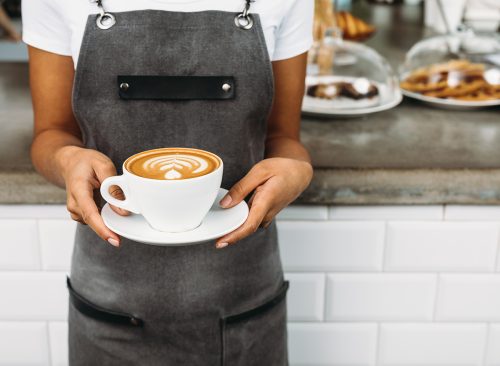
Jason Delossantos, a barista at Tidal Tea in New York City, spoke with the Wall Street Journal and revealed he regularly has to show people how to not include a tip on the touch screen. He shared that when he recently served two teenagers they quietly asked how to skip the tipping prompt and he showed them: “Tap customize, and select zero.” Sensing they felt guilty for stiffing him, he said it was “OK.”
“It’s kind of forcing them,” said Delossantos, 21. “If people want to tip, they tip. If they don’t, it’s fine.”

Another barista Jovanni Bautista, 19, started at Asbury Park Roastery in New Jersey back in May, which is his first job with tips. He’s so uncomfortable with the process that he avoids eye contact. He told the Journal, “If I’m looking at them while they’re paying, I just feel like it’s pressuring them.”

Brandon Hall, 26, a barista in New York told the Journal that he doesn’t expect tips on every order, especially if it’s a pastry and regular coffee. However, when it’s a made-to-order drink like a matcha latte, Hall admits he gets upset when there’s no tip since those items take skills to make.
On holiday weekends after a busy shift, he’s also bothered when customers hit “no tip” time and time again. No tips during a rush “can be pretty crushing,” he said.
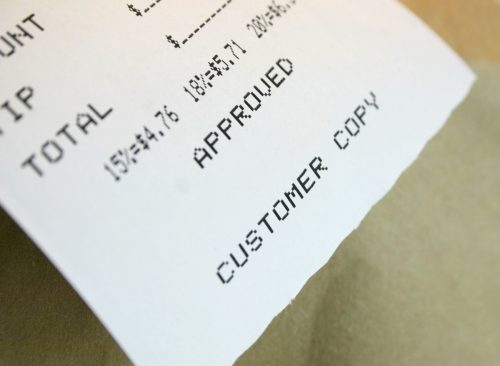
Capital Tacos is a fast food chain that doesn’t offer table service, but the co-founder Josh Luger has no problems asking customers for tips. “We run a scratch kitchen and we do a lot of hard work every day to deliver what we think is a unique and superior product,” he told CBS MoneyWatch. “We do a lot in stores to make sure that’s communicated to customers.”
“You’ve read the wall, seen the kitchen and the work that’s being done, and we hope you have the context so we make the ask,” Luger said. “No tip is required — you can sign the receipt and put nothing on there, but if you want to reward workers we think it’s reasonable to make that ask.”
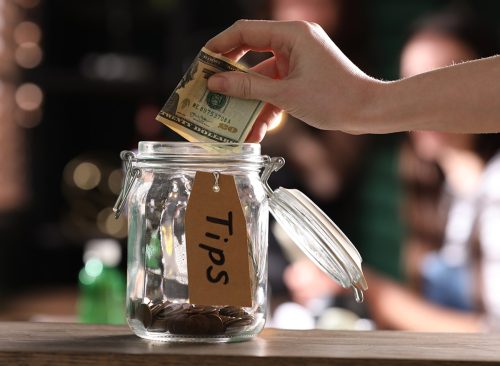
It’s always been expected to tip people working in certain industries because they rely on tips as the main part of their income. However, that’s all changing now and almost anyone can ask for a tip, which is confusing, according to experts.
“The nature of tipping is less about rewarding service providers for good service and more about social norms. Social norms have been distorted, so we don’t know when to tip,” Brian Warrener, associate professor of hospitality management at Johnson and Wales University, told CBS MoneyWatch.

Since people are being asked to tip when it’s least expected like at self-service kiosks, customers aren’t sure when to tip now.
“If I haven’t had much of a service interaction or great service, I have no problem not leaving a gratuity,” Warrener said. “It’s not warranted in this case. You didn’t earn it; you don’t deserve it in this case.”
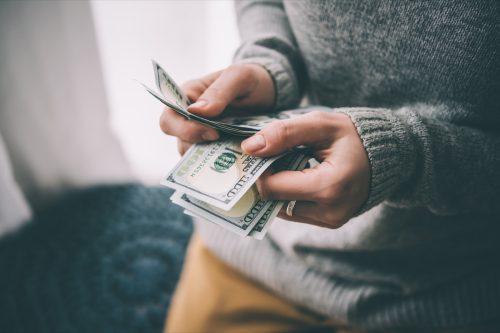
Even for hospitality experts, tipping has become a bit much in some cases. Columbia Business School professor Stephen H. Zagor told CBS, “If you feel someone is doing something beneficial to you and you have empathy and compassion, tip ’em!” he said. But he explained that when there’s no human interaction or when a self-kiosk prompts for a tip, it’s inappropriate.
“It’s like extortion. It’s suggesting adding a charge on where you don’t see where the charge is for or what its value is,” he said. He added, “I’m not going to tip a store I’m buying canned goods or ketchup from, but if someone provides service to me I always feel there’s a reward for that level of concern or energy they put out.”
RELATED: Wife Sues Cheating Husband for Age Discrimination, Only to Discover the Other Woman Was Older
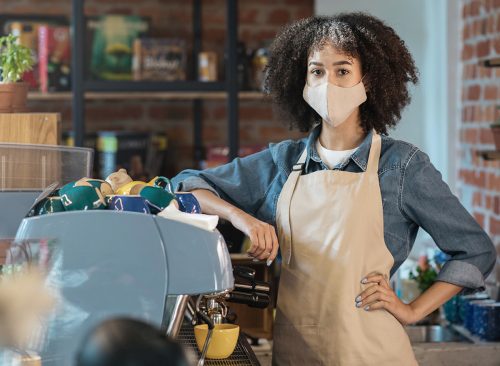
At the height of the pandemic, workers put their health at risk to offer services, which shattered tipping standards, and more than earned an extra reward for doing so. “Tipping during COVID was like a donation that recognized that frontline service employees were out there doing difficult, dangerous work,” Warrener said. “And we all appreciated it, so we all contributed a little bit extra to that charity.”














